

Back Pain And Coughing
Back pain and coughing often happen together and can be signs of a number of different problems. Knowing how the two symptoms are related and what they have in common can help you figure out what's wrong and get the right treatment.
When a person coughs, they may lean forward a little bit. This position can stress the back and move the vertebrae or bones in the spine, which can make lower back pain worse.
This blog will talk about how back pain and coughing are related, what causes them, how to diagnose them, and how to treat them
Causes
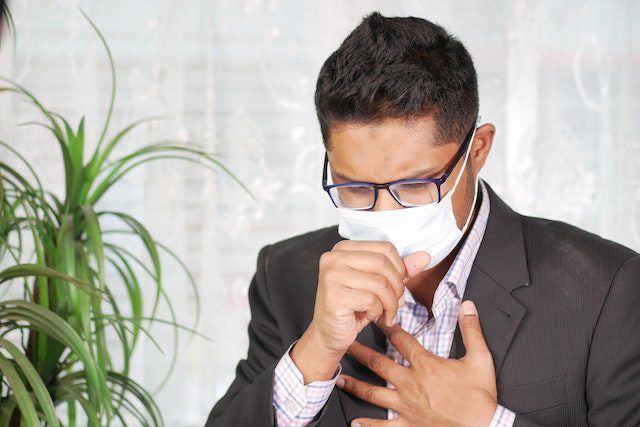
Here are some of the most common things that can make your back hurt when you cough.
1. Disk herniation
The disks between the vertebrae operate as shock absorbers and provide protection for the spine. Disks might shift or protrude as a result of everyday wear and tear. A herniated disk is the medical term for this condition.
Patients with acute sciatica whose leg pain worsened after coughing were more likely to have disk herniation. When the sciatic nerve is irritated or compressed, pain, known as sciatica, can develop.
The sciatic nerve runs from the lower back down both legs and can be irritated if a herniated disk puts pressure on its nerve roots.
Tingling and numbness down one or both legs might be a symptom of a disk herniation that has spread from the lower back. Bladder or bowel incontinence are among the symptoms associated with a herniated disk.
Resting the back, taking nonsteroidal anti-inflammatory medicines (NSAIDs), and putting on a cloth-wrapped ice pack for 10 minutes multiple times a day can all help with the pain of a disk herniation. Surgery to fix the herniated disk may be required in extreme circumstances.
2. Musculoskeletal Causes
Musculoskeletal problems, such as strained or torn back muscles, are a common source of pain in that area of the body when coughing. These can cause back discomfort and stiffness, and they are caused either by quick movements or being overworked.
A damaged spine or vertebrae might also cause back pain while coughing. Multiple causes, including trauma to the spine or degenerative diseases like osteoarthritis, can lead to this issue.
Coughing fits, especially if they come on suddenly, can place unanticipated strain on the back. Strains or pulls of muscles are common transient injuries caused by such stress.
It's possible that coughing, among other things, could make the pain worse. Stiffness in the back, muscle spasms, and discomfort in the muscles are also possible.
The use of nonsteroidal anti-inflammatory drugs (NSAIDs), bed rest for two days, avoiding positions and postures that aggravate pain, and the application of an ice pack wrapped in a towel can all aid in healing a sore back.
However, if the symptoms persist for longer than 4-6 weeks, medical attention is warranted.
3. Spinal stenosis
The spinal column gradually becomes increasingly narrow as we get older, which can lead to increased strain on the spinal cord and nerves. Leaning forward while coughing, for example, puts extra stress on the spinal cord and can aggravate existing back pain. Learn more about the ultimate guide to spinal stimulation here.
Lower back and leg tingling or cramping discomfort are additional symptoms associated with spinal stenosis. Sexual dysfunction, incontinence, and even amputation of the lower extremities have all been linked to this condition.
By strengthening and stabilizing the back through exercise, spinal stenosis symptoms may be relieved.
Taking nonsteroidal anti-inflammatory drugs (NSAIDs) or prescription drugs may also help reduce muscle spasms. Injections of corticosteroids are one treatment option, while some doctors may suggest surgery if the condition worsens.
4. Lung cancer
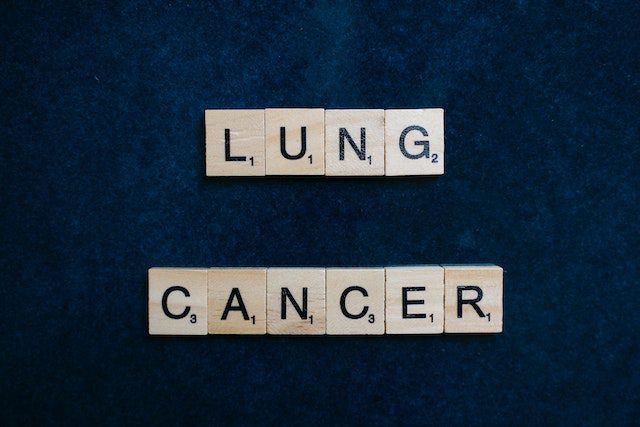
Coughing up blood can be a sign of lung cancer, which is an uncommon but possible cause of back pain. Pain in the bones may be an indicator of systemic spread.
Lung cancer symptoms also include:
- coughing up blood
- losing weight unexpectedly
- finding it hard to breathe
- wheezing
- fatigue
Depending on the stage of lung cancer, different treatments may be considered. Typically, doctors will use radiation and chemotherapy to reduce the size of the tumor before operating to remove it.
5. Respiratory Causes
Back pain while coughing can also be caused by problems with the lungs. When you have a chest infection, like pneumonia or bronchitis, it can make your chest and back hurt and swell up.
Asthma and chronic obstructive pulmonary disease (COPD) can also cause back pain while coughing because the coughing can strain the muscles in the back.
6. Neurological Causes
Back pain from coughing can also be caused by nerve damage or pressure on the spine. This can happen because of things like a slipped disc or spinal stenosis. Spinal cord injuries can also make it hurt to cough because the reflex to cough can put pressure on the injured area.
7. Unsupportive Mattress
A good night's sleep is vital to maintaining a strong and pain-free back. Old and unsupportive mattresses can cause back pain by not properly supporting the spine and keeping it alignment while you sleep. The less sleep you get because of a bad mattress, the worse you will feel during the day, affecting overall health, attitude, and eating habits too.
An alternating pressure mattress may be the way to ensure a better night's sleep.
8. Other Causes
When you cough, stomach problems, like acid reflux, can cause pain in your back. Acid can hurt the esophagus and make the chest and back hurt.
Back pain while coughing can also be caused by mental issues like anxiety, which can make the muscles tight and painful.
Home remedies

In order to relieve their lower back discomfort, a person can try a variety of home treatments. Here are some methods that could be useful:
- Several times a day, for 10 minutes each time, apply either a heated or chilled cloth-wrapped pack.
- Reducing the amount of time spent sitting or lying down to no more than two days. A prolonged period of rest may aggravate the patient's condition by causing the muscles in their back to contract and increase their level of discomfort.
- Naproxen and ibuprofen are examples of NSAIDs that can be taken for pain relief.
- Activities like walking and swimming, which have low impact, are recommended. There will be less inflammation and tense muscle strain in your back, thanks to them.
- Bracing techniques, such as holding a cushion against one's stomach and pulling inward during a cough, can be practiced to reduce the force of the cough. This technique can lessen the bending of the back that occurs when coughing, thereby easing the strain on the spine.
There's some evidence that going for a swim can help relieve back tension. Massage and acupuncture are two alternative treatments that some people have tried and found helpful for chronic back pain.
When to see a doctor
In the event that a person experiences symptoms that could be related to severe nerve compression or sickness, they should immediately seek emergency medical attention. Among these signs are:
- A shift in bowel or bladder routine
- Abnormal feelings in the legs or "saddle" region of the pelvis
- Extremely high body temperature (above 103 degrees Fahrenheit or 39.4 degrees Celsius) accompanied by: coughing, lower back pain, and muscle weakness.
- Urgent antibiotic treatment or perhaps surgery to release nerve compression may be necessary for these symptoms.
These are some other signs that it's time to see a doctor:
- Persistent back pain that won't go away, even with rest;
- Severe back pain that makes normal life difficult
- Periodic tingling or numbness
If your symptoms are persistent, your doctor may suggest consulting a specialist.
Diagnosis and Treatment
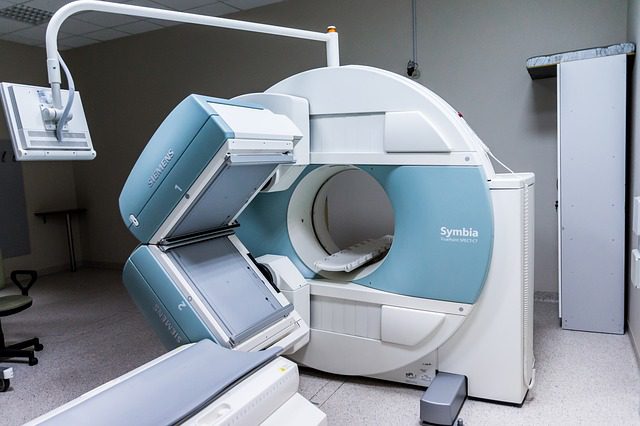
For an accurate diagnosis of the cause of your back hurting when you cough, it's best to see a doctor. To identify the source of the discomfort, a doctor will do a thorough physical examination, evaluate the patient's medical history, and maybe prescribe imaging tests (such as X-rays or MRI).
The most effective method for relieving back pain during coughing will depend on the underlying cause of the discomfort. Pain from musculoskeletal problems can be managed with medicines and physical therapy.
In some cases, medicine, such as antibiotics, may be necessary to treat an infection in the respiratory system. Interventions, such as surgery, may be necessary to treat the underlying cause of some neurological disorders.
Medication to treat acid reflux and other behavioral modifications may be necessary for those suffering from digestive problems. Counseling or treatment may be necessary if the root problem is psychological.
Quick Tips to Avoid Back Pain When Coughing or Sneezing
It is common practice for many people to lean forward when they have to cough or sneeze. This, however, is among the worst possible alternatives. Because of this, there is a 300 percent rise in pressure within the spinal discs. And if you have a disc tear, leaning forward too rapidly might put pressure on a nerve and create severe, sudden back pain.
Consequently, if you are one of the numerous people who experience back pain from coughing or sneezing, be sure to follow our quick-fix suggestions:
1. Keep your Back Arched
Most people round their shoulders and slouch forward when they have to cough or sneeze. This, however, is among the worst possible options. Keep your back's natural arch when you cough or sneeze to alleviate strain on your spinal discs and avoid pain.
2. Support Yourself
Just put your hand down on a desk or ledge if you need to cough or sneeze. The pressure on the spinal cord is relieved as a result.
3. Rest
A back injury doesn't necessarily call for a week of bed rest. To rest your back, you need to refrain from the actions that bring on or worsen your pain. If you have back pain, staying in bed too much could make it worse.
For the best results, avoid sleeping for more than two days straight and never for more than a few hours at a time. Put a pillow under your knees if you like to sleep on your back, or wedge one in between your knees if you prefer to sleep on your side to alleviate pressure on your spine and muscles.
4. Lumbar Chair Support
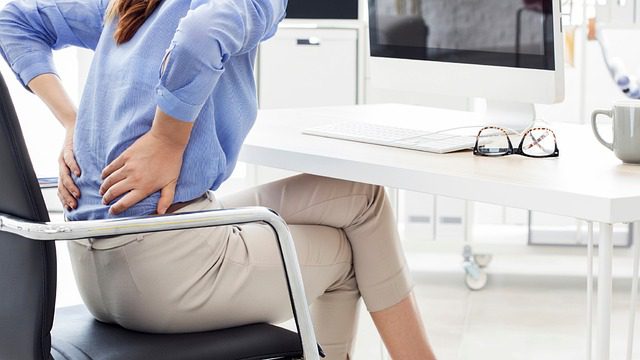
The lumbar region is part of the spine that has a normal curve. Lower back pain occurs when the lumbar spine is pushed outward, as it often is when coughing and sneezing.
If you want to avoid chronic back pain, a lumbar chair support may be the answer. These pillows are great for relieving lower back pain and stiffness. When used regularly, it can even improve the poor posture that has been linked to your back pain.
Backrest cushions are adaptable to a wide variety of chairs, so they're not just for the office.
5. Back brace
Strains and sprains can cause excruciating agony in your lower back. A back brace can help alleviate that discomfort, as well as speed up your recovery time, ease chronic pain or muscle spasms, improve your posture, and prevent further injury. The brace will help keep your back straight and alleviate pressure on your spine.
If you get back pain whenever you cough or sneeze, a decent back brace can provide immediate and long-term relief. Several options for back braces are available. Choose the one that will let you work, exercise, and enjoy your life without sacrificing your comfort.
The brace should fit perfectly without slipping or bunching.
6. Cold therapy
Pain and inflammation can be reduced by using ice, which has been used medically for centuries. Cryotherapy, or cold therapy, reduces swelling and pain by narrowing blood vessels and contracting muscles.
If your back is hurting you right now, or if you want to prevent more discomfort after a bout of coughing, sneezing, or vigorous exercise, ice it. Use an ice pack for 15 to 30 minutes at a time, as often as necessary.
Cold sensations can exacerbate the pain associated with muscle knots and spasms. Hence ice shouldn't be used for these conditions.
7. Heat Therapy
Many people find relief from their back pain by applying heat, which is especially effective on muscle knots and cramping or hurting muscles.
To improve blood flow, heat therapy causes the blood vessels to dilate. When blood flow is stimulated, more oxygen and nutrients are delivered to injured areas, speeding recovery and facilitating the elimination of waste products. One to three times a day, for up to twenty minutes at a time, use a heating pad or soak in a hot bath.
In the first 72 hours after a fresh injury, heat should be avoided as it can increase inflammation. Contrast therapy involves alternating between ice and heat to get the benefits of both treatments.
8. TENS Therapy
When applied to the skin, Transcutaneous Electrical Nerve Stimulation (TENS) uses a low-voltage electrical current to relax muscles and reduce back discomfort. TENS is effective for muscular and joint pain, inflammation, and even back pain from coughing or sneezing.
One of the advantages of TENS therapy is that it can be administered at home rather than requiring a trip to a clinic or hospital. Always get your doctor's approval before initiating TENS therapy.
9. Stay Mobile and Stretch
In spite of their pain, patients with lower back pain are highly encouraged to maintain an active lifestyle. Back and neck pain can result from sitting in one position all day, especially at a desk. Back discomfort is exacerbated by being overweight, which is made worse by a lack of exercise.
Engaging in regular physical activity increases cardiac output and blood flow. All of your muscles, joints, ligaments, and tendons will benefit from this increased blood flow, remaining supple and powerful as you age. Spinal discs benefit from exercise because it increases blood flow and nutrient delivery to the discs.
If you tend to strain your back when you sneeze or cough, you can alleviate the pain in three ways. Maintain your flexibility with light stretches, strengthen your core, and do some aerobic exercise with walking, swimming, or an elliptical machine.
10. Wear Insoles and Appropriate Footwear
High-quality insoles and shoes are worth the investment for those whose back discomfort is caused or exacerbated by standing for long periods of time. The correct insoles and shoes can stop the transmission of shock and impact from your feet, up your legs, and into your lower back muscles.
Select shoes that offer adequate arch and heel support and replace any that are visibly worn in the heels or soles. Athletic shoes should be replaced every six months to ensure maximum shock absorption during exercise.
11. Maintain a Healthy Weight
Overweight people frequently experience back pain. This is because the discs, muscles, and ligaments of the spine are being stressed in a new way. Repeated motions like coughing or sneezing exacerbate the problem, leading to persistent back pain.
If you're overweight, losing weight could have a significant impact on your back discomfort and general health. Regular exercise and a healthy, portion-controlled diet will help you achieve this goal. If you want to keep tabs on your weight loss progress, it's a good idea to purchase a high-quality digital scale.
12. Always Lift with Your Legs
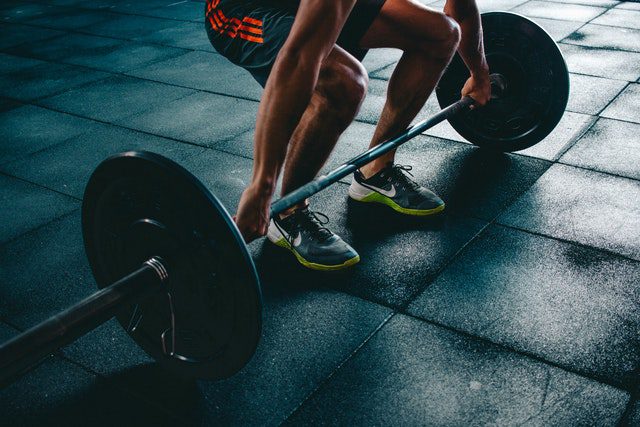
Back pain is frequently brought on by inefficient lifting techniques. Always bend at the knees and elbows when lifting to protect your back.
Never rely on your back for propulsion; instead, rely on your legs. Make sure you don't overdo it by bending and twisting at the same time. Inquire with a trainer about how to improve your form before beginning any weight-lifting routine.
Learn more about Stretches For Middle Back Pain, here.
Conclusion
Different underlying problems might cause symptoms like back discomfort and coughing. Disorders of the musculoskeletal system, the respiratory system, the nervous system, the digestive system, and the mind are all among the common contributors.
Proper diagnosis and treatment require that you talk to a doctor. Physical therapy, medication, surgical intervention, and alterations to one's way of life are only some of the potential avenues of treatment, depending on the underlying illness.
When you treat back pain and coughing very away, you can lessen the likelihood of serious problems and increase your quality of life.
About Dr. Sean Ormond



